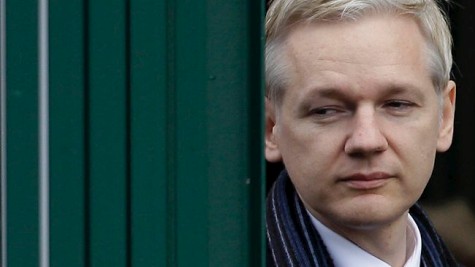Internet does not favour freedom of speech, says WikiLeaks founder

While the internet allows for greater government transparency and co-ordination of activism, the other side of this coin is how easy it is for authorities to monitor and catch dissidents.
WikiLeaks founder Julian Assange addressed students at Cambridge University last night in a speech held behind closed doors with journalists not allowed, but according to The Guardian, Assange said:
“[The web] is not a technology that favours freedom of speech. It is not a technology that favours human rights. It is not a technology that favours civil life. Rather it is a technology that can be used to set up a totalitarian spying regime, the likes of which we have never seen. Or, on the other hand, taken by us, taken by activists, and taken by all those who want a different trajectory for the technological world, it can be something we all hope for.”
Assange pointed out that Twitter and Facebook are playing a smaller part in the Middle Eastern political changes than has been accredited, as revolutionaries know from previous experience how the footprints left on these sites will make it easy for the governments to track them. More credit belongs to news organisation al-Jazeera, said Assange, who also claimed credit for releasing documents which prevented the US government from backing former Egyptian president Hosni Mubarak.
Assange is currently appealing a court decision to extradite him to Sweden where he faces allegations of sexual assault. Students at Cambridge queued for hours to hear him speak last night.


One thought on “Internet does not favour freedom of speech, says WikiLeaks founder”
I agree with him in some parts, I don’t think its as spy’y as all that though
Comments are closed.